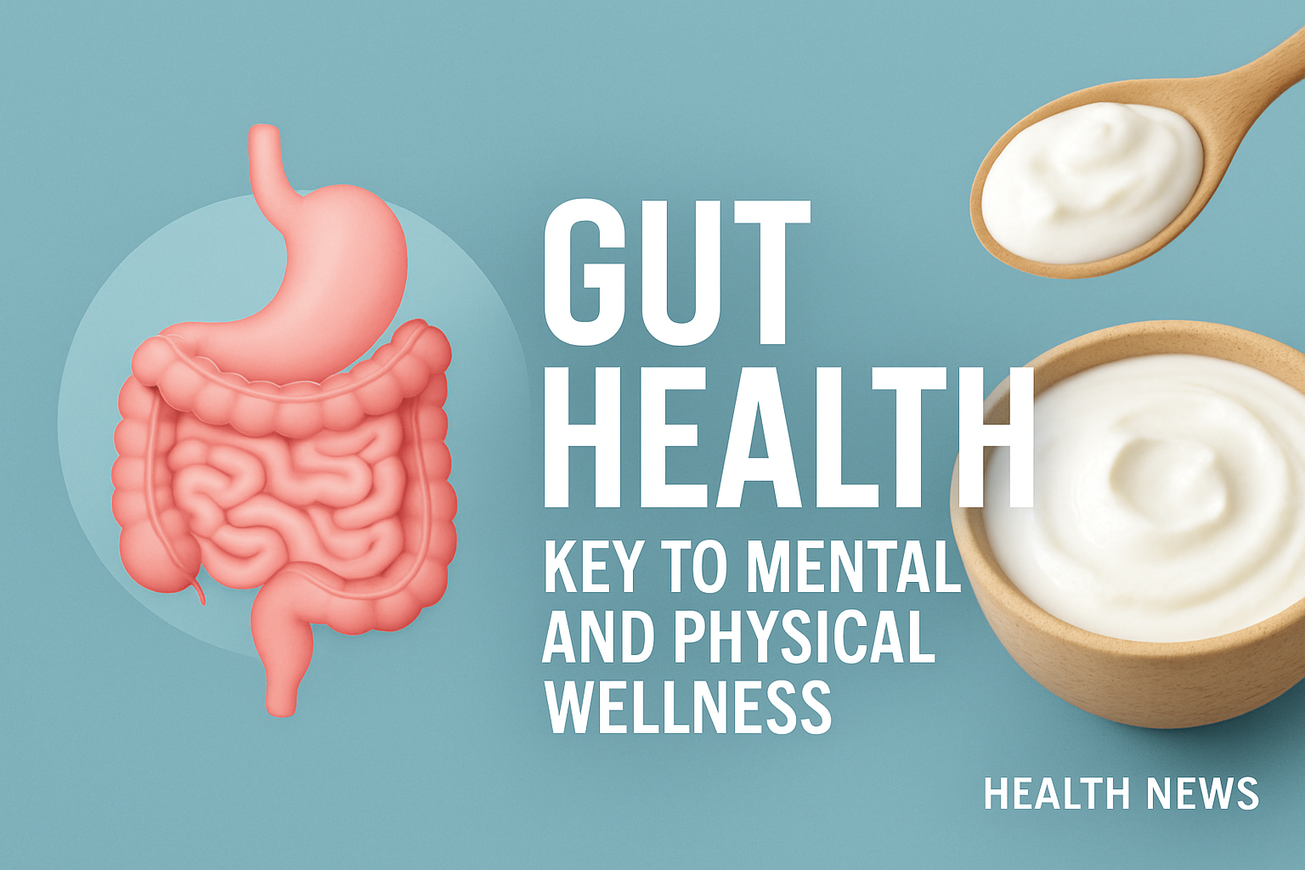Discover how gut health influences your mental clarity, immunity, and overall wellness.
Recent studies and expert opinions are spotlighting the vital role of gut health in shaping our overall well-being. As the gut-brain connection becomes clearer, new insights suggest that nurturing the gut microbiome can lead to remarkable benefits for both mental health and physical resilience.
1. The Gut-Brain Connection: Science Reveals the Link
Emerging research underscores the gut-brain axis—a communication highway between the digestive tract and brain via neural, hormonal, and immune pathways:
- Up to 80% of serotonin, a key mood-regulating neurotransmitter, is produced in the gut, linking digestion to emotional balance.
- A landmark animal study showed that removing gut bacteria reduces vagus nerve activity, which is later restored by reintroducing bacteria-derived metabolites like short-chain fatty acids
This connection signals that gut health may influence not only digestion and immunity, but also anxiety, stress, mood disorders, and cognitive clarity.
2. Experts Recommend the 5R Approach to Clean Up Your Gut
The 5R protocol, endorsed by functional medicine, presents a step-by-step plan to improve gut microbiome health:
- Remove inflammatory triggers (processed foods, gluten)
- Replace enzymes and nutrients (like fiber, digestive aids)
- Re-inoculate with good bacteria (probiotics, fermented foods)
- Repair the gut lining with nutrients such as omega-3 and L-glutamine
- Rebalance with stress management, sleep, and lifestyle habits
Experts urge following these steps under medical supervision—it’s not just about diet, but about rebuilding long-term gut resilience.
3. Everyday Seeds to Support Hormones, Bones, and Digestion
Simple additions to daily meals can boost gut and metabolic health:
- Chia, flax, pumpkin, sesame, fennel seeds support hormone balance, gut digestion, and bone strength
Including these nutrient-dense seeds enhances fiber intake and provides essential fatty acids important for gut lining health.
4. Affordable Superfoods for Gut & Immunity
Forget pricey imports—nutrition experts advocate for wholesome, affordable food choices:
- Staples like oats, peas, carrots, potatoes, tomatoes, leafy greens, legumes, and fermented foods like yogurt and yogurt alternatives are just as effective as exotic superfoods
These pantry-friendly foods are rich in fiber, antioxidants, and nutrients that maintain gut diversity and immune health.
5. Biomarkers: A New Frontier in Gut Health Diagnosis
High-tech research is uncovering microbial biomarkers—bacterial species and metabolites that could signal early risks of colorectal cancer, gastric cancer, and inflammatory bowel disease (IBD):
- Scientists at University of Birmingham and others are identifying microbial patterns linked to disease through AI, paving the way for non-invasive diagnostic tools.
This could someday revolutionize preventive care, using stool tests or breath tests instead of invasive procedures.
6. Fecal Microbiota Transplants (FMT): Breaking Ground in Treatment
Fecal microbiota transplants are gaining medical legitimacy, especially for Clostridioides difficile infections:
- This treatment shows an 85–90% success rate when other therapies fail, and is even available in oral forms like Rebyota and Vowst.
Researchers are now testing FMTs for ulcerative colitis and Crohn’s disease, and new microbiome-based therapies are under development.
7. Personalized Gut Nutrition is the Future
As microbiome science advances, tailored nutrition plans are emerging:
- Platforms using AI and microbiome testing can now create personalized dietary advice based on an individual’s gut profile.
These tools could guide future interventions, moving beyond one-size-fits-all diets to targeted nutritional strategies.
8. Mental Health Boosted by Psychobiotics
Probiotics that impact the brain—also known as psychobiotics—are under study:
- Early findings suggest Lactobacillus and Bifidobacterium strains may reduce anxiety and improve sleep.
- However, experts caution that results are preliminary, emphasizing that a balanced lifestyle remains the foundation of mental well-being.
Daily Takeaway: Practical Steps for Gut Health
- Eat fiber-rich, plant-based foods daily (fruits, vegetables, legumes, oats).
- Include fermented foods and seeds like flax, pumpkin, chia, or sesame.
- Limit processed foods and added sugars—they can diminish gut diversity.
- Prioritize sleep, stress relief, and movement—all vital for a healthy gut ecosystem.
- Consider a gut check-up if you have persistent digestive, mood, or metabolic issues.
Why It Matters
Boosting gut health is not just a trend—it’s a scientific imperative for improving immunity, reducing inflammation, preventing chronic disease, and maintaining mental equilibrium. As diagnostic and treatment tools evolve, gut wellness has become a frontier in preventive, personalized, and integrated healthcare.















